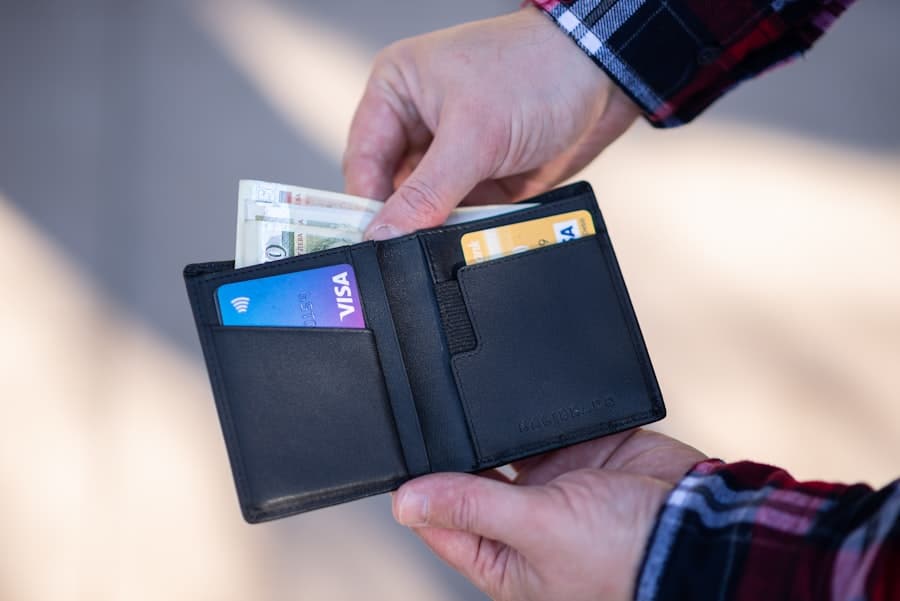In recent years, blockchain technology has emerged as a transformative force across various industries, and loyalty programs are no exception. Traditionally, loyalty programs have relied on centralized databases to track customer points and rewards, often leading to inefficiencies, lack of transparency, and challenges in customer engagement. However, the advent of blockchain technology has introduced a decentralized approach that can address many of these issues.
By leveraging the inherent characteristics of blockchain—such as immutability, transparency, and security—businesses can create loyalty programs that are not only more efficient but also more appealing to customers. The rise of blockchain in loyalty programs can be attributed to several factors. First, consumers are increasingly demanding greater control over their data and rewards.
They want to know how their information is being used and seek assurance that their loyalty points are secure and easily transferable. Blockchain technology provides a solution by allowing customers to own their loyalty points as digital assets, which can be stored in a secure wallet and used across multiple platforms. This shift not only enhances customer trust but also encourages greater participation in loyalty programs, as customers feel empowered by the ability to manage their rewards independently.
Key Takeaways
- Blockchain technology is revolutionizing loyalty programs by providing a secure and transparent platform for transactions and rewards.
- Blockchain enhances customer engagement by offering personalized and seamless experiences, increasing trust and loyalty.
- Businesses can benefit from blockchain-based loyalty programs through improved customer retention, reduced costs, and valuable data insights.
- Overcoming challenges in implementing blockchain loyalty programs requires addressing scalability, interoperability, and regulatory compliance issues.
- Smart contracts play a crucial role in automating and enforcing the terms of loyalty programs, ensuring trust and efficiency in transactions.
How Blockchain Enhances Customer Engagement
Blockchain technology enhances customer engagement by fostering a more interactive and rewarding experience. One of the most significant advantages is the ability to create a seamless ecosystem where customers can earn and redeem loyalty points across various merchants. For instance, a customer who earns points from a coffee shop could use those points at a nearby bookstore or restaurant that participates in the same blockchain-based loyalty program.
This interoperability not only increases the utility of loyalty points but also encourages customers to engage with multiple brands, thereby deepening their relationship with each participating business. Moreover, blockchain enables personalized marketing strategies that can significantly enhance customer engagement. By utilizing smart contracts and data analytics, businesses can tailor offers and rewards based on individual customer behavior and preferences.
For example, if a customer frequently purchases a specific type of product, the system can automatically generate personalized discounts or bonus points for that product category. This level of customization not only makes customers feel valued but also drives repeat purchases, as they are more likely to engage with brands that recognize and reward their preferences.
The Potential Impact of Blockchain-Based Loyalty Programs on Businesses

The potential impact of blockchain-based loyalty programs on businesses is profound. By adopting this technology, companies can reduce operational costs associated with managing traditional loyalty programs. The decentralized nature of blockchain eliminates the need for intermediaries and reduces the risk of fraud, which can be prevalent in conventional systems.
For instance, businesses can save on administrative costs related to tracking points and managing customer databases, allowing them to allocate resources more effectively toward enhancing customer experiences. Furthermore, blockchain-based loyalty programs can lead to increased customer retention and acquisition. As customers become more aware of the benefits associated with blockchain technology—such as enhanced security, transparency, and flexibility—they are likely to gravitate toward brands that offer these innovative solutions.
This shift can create a competitive advantage for businesses that embrace blockchain early on, positioning them as leaders in customer engagement and loyalty. Additionally, the ability to analyze data from a decentralized network allows businesses to gain insights into customer behavior across different platforms, enabling them to refine their marketing strategies and improve overall service delivery.
Overcoming Challenges in Implementing Blockchain Loyalty Programs
Despite the numerous advantages of blockchain technology in loyalty programs, several challenges must be addressed for successful implementation. One significant hurdle is the complexity of integrating blockchain with existing systems. Many businesses operate on legacy systems that may not be compatible with blockchain technology.
Transitioning to a new system requires careful planning, investment in new infrastructure, and training for employees to ensure a smooth transition. Companies must also consider how to educate their customers about using blockchain-based loyalty programs effectively. Another challenge lies in regulatory compliance and legal considerations surrounding data privacy.
As blockchain technology operates on a decentralized network, it raises questions about data ownership and user consent. Businesses must navigate various regulations, such as the General Data Protection Regulation (GDPR) in Europe, which mandates strict guidelines on data handling and privacy. Ensuring compliance while leveraging the benefits of blockchain requires a thorough understanding of legal frameworks and may necessitate collaboration with legal experts to develop policies that protect both the business and its customers.
The Role of Smart Contracts in Blockchain Loyalty Programs
Smart contracts play a pivotal role in enhancing the functionality of blockchain-based loyalty programs. These self-executing contracts are programmed to automatically enforce the terms of an agreement when specific conditions are met. In the context of loyalty programs, smart contracts can streamline processes such as point accumulation, redemption, and transfer between users.
For example, when a customer makes a purchase at a participating retailer, a smart contract can automatically credit their account with loyalty points without requiring manual intervention from staff. Additionally, smart contracts facilitate transparency and trust within loyalty programs. Customers can easily verify their point balances and transaction history on the blockchain, ensuring that they receive accurate rewards for their purchases.
This transparency reduces disputes over point allocation and fosters a sense of trust between customers and businesses. Furthermore, smart contracts can enable innovative reward structures, such as tiered loyalty levels or time-sensitive promotions that automatically adjust based on customer behavior or market conditions.
Ensuring Data Security and Privacy in Blockchain Loyalty Programs

Data security and privacy are paramount concerns for any loyalty program, particularly those utilizing blockchain technology. While blockchain is inherently secure due to its decentralized nature and cryptographic features, businesses must still implement robust security measures to protect sensitive customer information. This includes employing encryption techniques to safeguard data stored on the blockchain and ensuring that access controls are in place to prevent unauthorized access.
Moreover, businesses must prioritize user privacy by allowing customers to control their data sharing preferences. Implementing features such as zero-knowledge proofs can enable customers to prove their eligibility for rewards without revealing their entire transaction history or personal information. This approach not only enhances privacy but also builds trust with customers who may be hesitant to share their data in an increasingly data-driven world.
The Integration of Blockchain Loyalty Programs with Existing Customer Engagement Strategies
Integrating blockchain-based loyalty programs with existing customer engagement strategies is crucial for maximizing their effectiveness. Businesses must ensure that these new programs complement traditional marketing efforts rather than replace them entirely. For instance, companies can leverage existing customer data from traditional loyalty programs to inform the design of their blockchain initiatives.
By understanding customer preferences and behaviors from previous programs, businesses can create more targeted and appealing offers within the new framework. Additionally, cross-channel marketing strategies can enhance the visibility and adoption of blockchain loyalty programs. Businesses should promote these initiatives through various channels—such as social media, email marketing, and in-store promotions—to educate customers about the benefits of participating in a blockchain-based system.
The Future Outlook for Blockchain-Based Loyalty Programs
The future outlook for blockchain-based loyalty programs appears promising as more businesses recognize the potential benefits of this technology. As consumer expectations continue to evolve toward greater transparency and personalization, companies that adopt blockchain solutions will likely gain a competitive edge in the marketplace. The increasing demand for interoperability among different loyalty programs will drive further innovation in this space, leading to more partnerships between brands that seek to create cohesive ecosystems for their customers.
Moreover, advancements in technology will likely enhance the capabilities of blockchain-based loyalty programs over time. As scalability issues are addressed and transaction speeds improve, businesses will be able to implement more complex reward structures without compromising efficiency or user experience. Additionally, as regulatory frameworks surrounding blockchain technology become clearer, businesses will find it easier to navigate compliance challenges while reaping the benefits of decentralized systems.
In conclusion, the integration of blockchain technology into loyalty programs represents a significant shift in how businesses engage with their customers. By addressing challenges related to implementation and ensuring robust security measures are in place, companies can harness the power of blockchain to create innovative loyalty solutions that resonate with modern consumers. As this technology continues to evolve, it will undoubtedly shape the future landscape of customer engagement strategies across industries.
In addition to exploring The Future of Blockchain-Based Loyalty Programs for Customer Engagement, readers may also be interested in learning about the best VPS hosting providers for 2023. This article provides valuable insights into the top hosting options available for businesses looking to enhance their online presence and improve website performance. To read more about the best VPS hosting providers, check out

